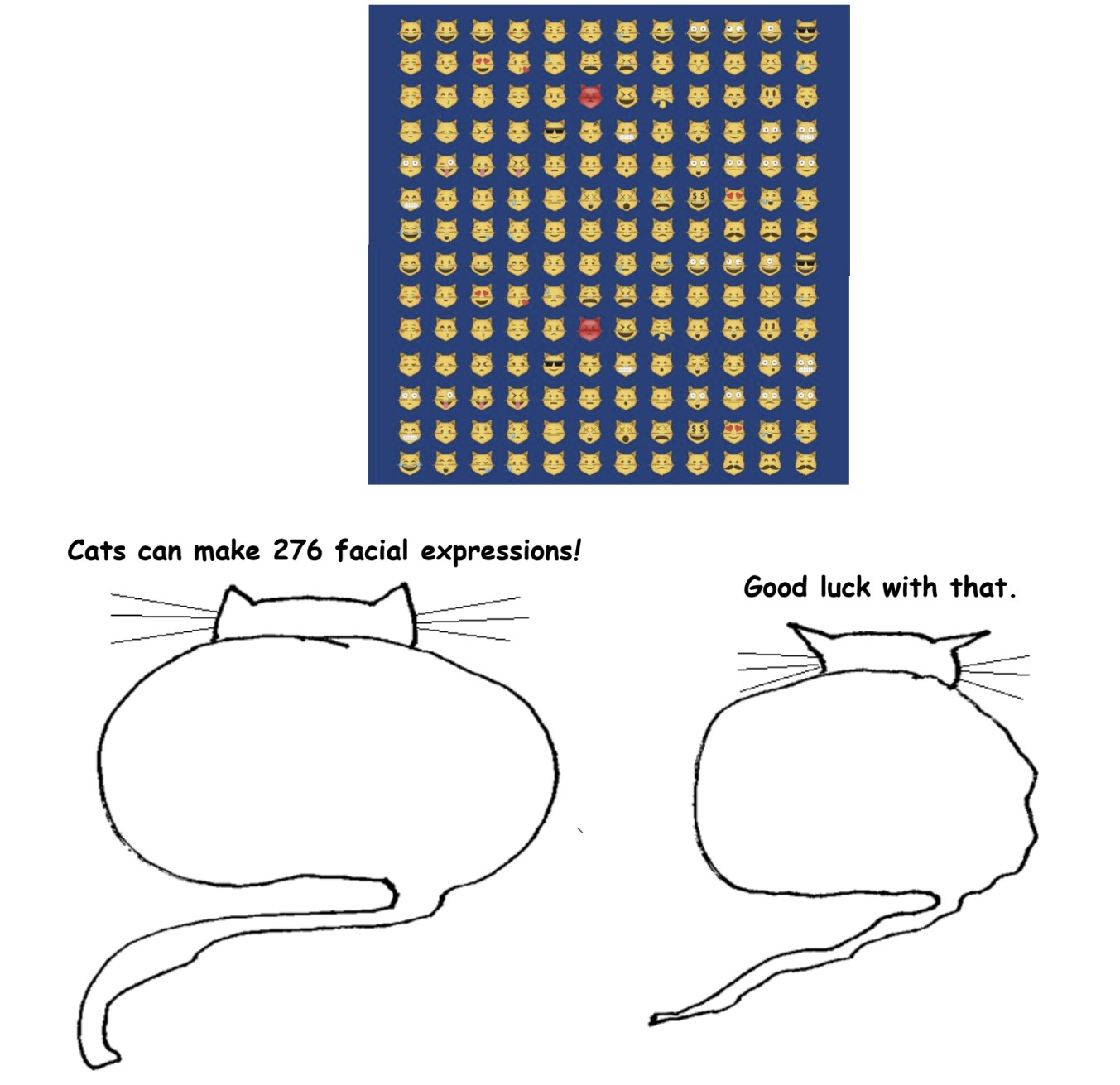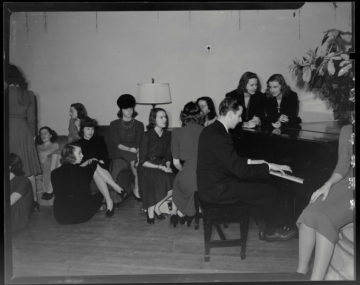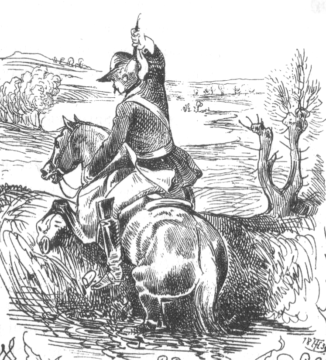by Nate Sheff
 We all naturally take an interest in the night sky. Just last week, my fiancee and I attended an event put on by the Astronomical Society of New Haven. Without a cloud in the sky, near-freezing temperatures, and a new moon, the conditions were ideal for looking through telescopes the size of cannons. To see anything, you had to stand in line, in the cold, for your opportunity to look at something for a minute.
We all naturally take an interest in the night sky. Just last week, my fiancee and I attended an event put on by the Astronomical Society of New Haven. Without a cloud in the sky, near-freezing temperatures, and a new moon, the conditions were ideal for looking through telescopes the size of cannons. To see anything, you had to stand in line, in the cold, for your opportunity to look at something for a minute.
A surprising number of people turned out for this opportunity. By the time we left, there had to be about a hundred people (and more likely arrived later), making up a good cross section of society. And they all enjoyed themselves. The most memorable attendee was a woman in front of us in line to see Jupiter. The astronomer at the telescope told her to look at the dark bands that are the eternal storms in the planet’s atmosphere.
“Wow,” she said, stepping away.
The astronomer asked, “Did you see the moons?”
“The moons?” She looked again. We could see them through the binoculars we brought: four points almost in a line near the planet, glittering in the dark.
“Those are moons?”
That one piece of information transformed the appearance of the planet from a lonely island to a tidy neighborhood.
Immanuel Kant’s tombstone has a line from the Critique of Practical Reason: “Two things fill the mind with ever new and increasing admiration and awe, the more often and steadily we reflect upon them: the starry heavens above me and the moral law within me.” Whether or not you agree with him on the moral law, you can’t fault him for his view of the stars. Read more »

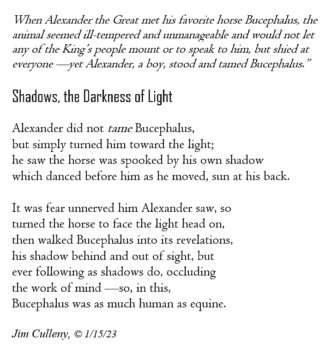

 Ron Amir. Bisharah and Anwar’s Tree, 2015. From the exhibition titled Doing Time in Holot.
Ron Amir. Bisharah and Anwar’s Tree, 2015. From the exhibition titled Doing Time in Holot.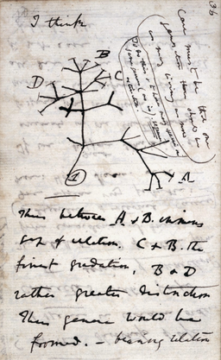
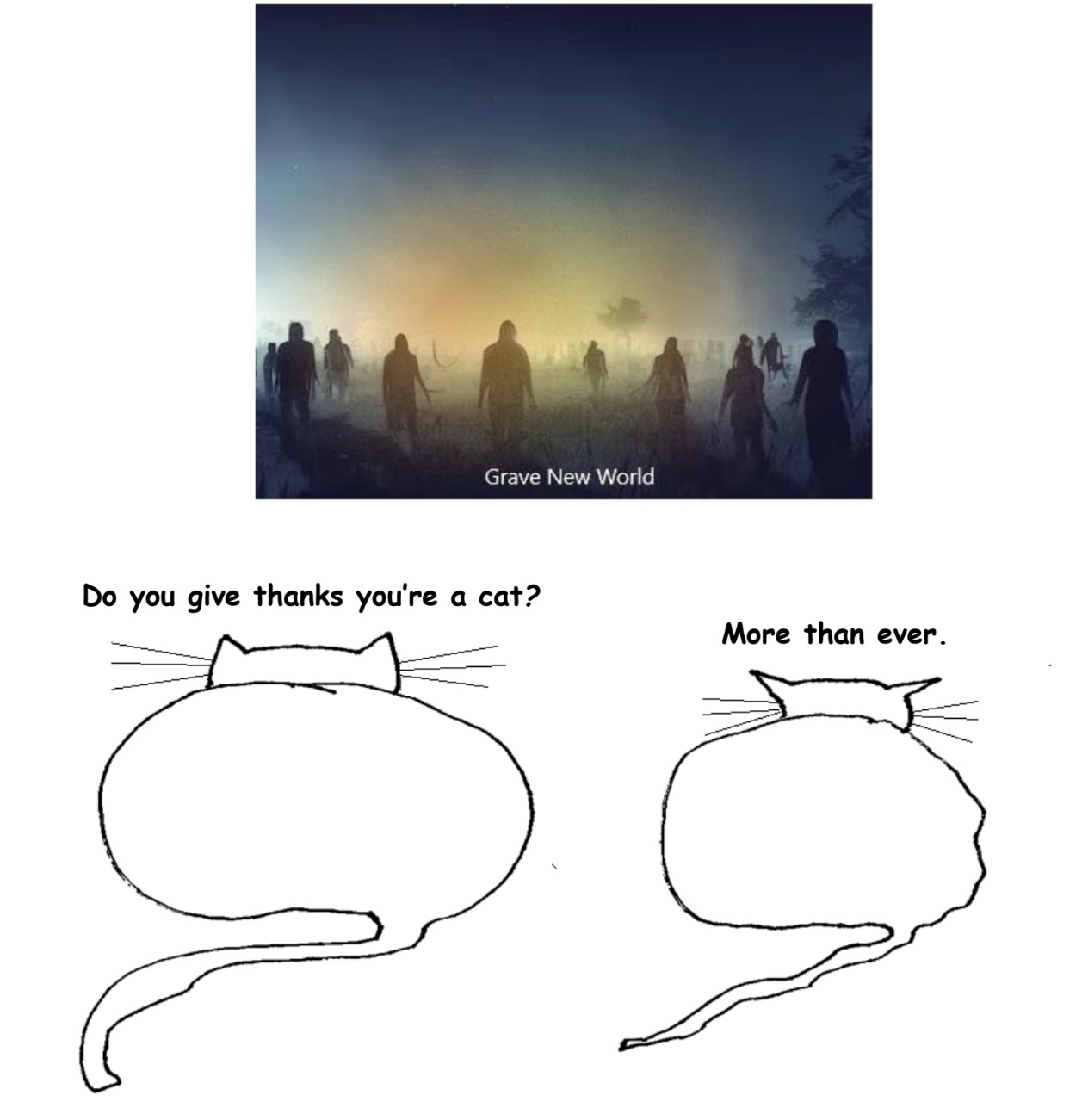
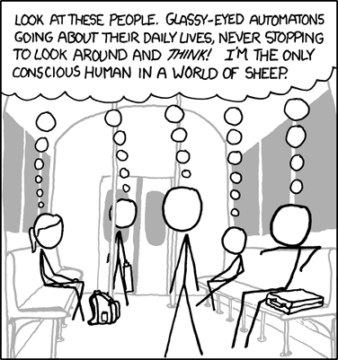

 You’ve always dreamed of foreign travel and you’re aware that there’s a long history of people doing it, and benefiting from it. But you live under a regime that closed the borders a couple of generations ago, at the same time criminalizing the act of researching potential destinations. (Many countries were dangerous, they said, and some tourists were coming home with tie-dyed shirts and peculiar ideas.) To protect the vulnerable, a War on Travel was announced. In the years since, you have grown up with little more than rumors of other cultures, climates, cuisines.
You’ve always dreamed of foreign travel and you’re aware that there’s a long history of people doing it, and benefiting from it. But you live under a regime that closed the borders a couple of generations ago, at the same time criminalizing the act of researching potential destinations. (Many countries were dangerous, they said, and some tourists were coming home with tie-dyed shirts and peculiar ideas.) To protect the vulnerable, a War on Travel was announced. In the years since, you have grown up with little more than rumors of other cultures, climates, cuisines.  Artificial intelligence – AI – is hot right now, and its hottest part may be fear of the risks it poses. Discussion of these risks has grown exponentially in recent months, much of it centered around the threat of existential risk, i.e., the risk that AI would, in the foreseeable future, supersede humanity, leading to the extinction or enslavement of humans. This apocalyptic, science fiction-like notion has had a committed constituency for a long time – epitomized in the work of researchers like
Artificial intelligence – AI – is hot right now, and its hottest part may be fear of the risks it poses. Discussion of these risks has grown exponentially in recent months, much of it centered around the threat of existential risk, i.e., the risk that AI would, in the foreseeable future, supersede humanity, leading to the extinction or enslavement of humans. This apocalyptic, science fiction-like notion has had a committed constituency for a long time – epitomized in the work of researchers like 


 The narrator of Alberto Moravia’s 1960 novel Boredom is constantly defining what it means to be bored. At one point, he says “Boredom is the lack of a relationship with external things” (16). He gives an example of this by explaining how boredom led to him surviving the Italian Civil War at the end of World War II. When he is called to return to his army position after the Armistice of Cassibile, he does not report to duty, as he is bored: “It was boredom, and boredom alone—that is, the impossibility of establishing contact of any kind between myself and the proclamation, between myself and my uniform, between myself and the Fascists…which saved me” (16).
The narrator of Alberto Moravia’s 1960 novel Boredom is constantly defining what it means to be bored. At one point, he says “Boredom is the lack of a relationship with external things” (16). He gives an example of this by explaining how boredom led to him surviving the Italian Civil War at the end of World War II. When he is called to return to his army position after the Armistice of Cassibile, he does not report to duty, as he is bored: “It was boredom, and boredom alone—that is, the impossibility of establishing contact of any kind between myself and the proclamation, between myself and my uniform, between myself and the Fascists…which saved me” (16). The only light in the second-class train compartment came from the moonlight, which filtered through the rusty iron grill of the window. The sun had set hours earlier, a fiery red ball swallowed whole by the famished Rajasthani countryside. I sat at the window on the bottom berth of my compartment of the Sainak Express, headed from Jaipur to Delhi.
The only light in the second-class train compartment came from the moonlight, which filtered through the rusty iron grill of the window. The sun had set hours earlier, a fiery red ball swallowed whole by the famished Rajasthani countryside. I sat at the window on the bottom berth of my compartment of the Sainak Express, headed from Jaipur to Delhi.